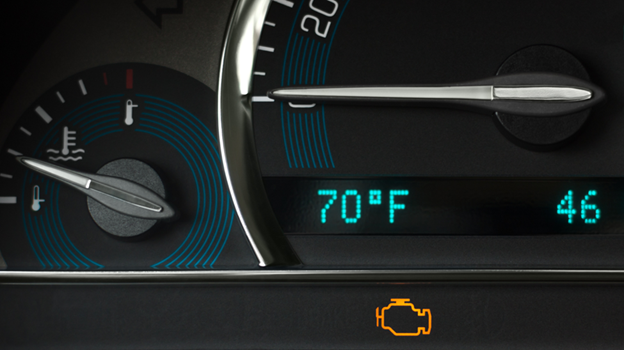Modern diesel trucks and vehicles are built with advanced systems that monitor performance, emissions, and engine health. When something goes wrong, your dashboard warning lights are often the first indicator. While it’s tempting to ignore a light that flicks on for a moment or doesn’t seem urgent, paying attention to these signals can save you from serious engine damage, expensive repairs, or unsafe driving conditions.
To help you stay on top of your vehicle’s needs, here are eight common warning lights every diesel owner should know—and what they mean.
1. Check Engine Light (CEL)
The check engine light is one of the most important warning signals in any vehicle, including diesels. When this light turns on, it could indicate anything from a loose fuel cap to a malfunctioning turbocharger or faulty sensor.
For diesel engines, common triggers include issues with the fuel injection system, glow plugs, or emissions components like the EGR valve or diesel particulate filter (DPF). If this light appears, it’s crucial to have a professional run diagnostics—even if the truck seems to drive fine.
2. Glow Plug Indicator
Glow plugs help heat the combustion chamber in a diesel engine, especially during cold starts. When this indicator lights up, it usually means the system is warming up. But if the glow plug light stays on or begins flashing while driving, it could mean a faulty glow plug, relay, or control module.
Ignoring this can result in hard starts, poor fuel economy, or incomplete combustion that damages your engine over time.
3. Diesel Particulate Filter (DPF) Warning Light
The DPF system traps soot from the exhaust to reduce emissions. Over time, the filter becomes full and must go through a regeneration cycle to burn off the buildup.
If the DPF warning light comes on, it means the system wasn’t able to regenerate properly. This might require manual regeneration or even cleaning or replacing the filter. Continuing to drive without addressing a clogged DPF can cause reduced power, limp mode, and serious engine strain.
4. Water in Fuel Warning
Diesel fuel systems are extremely sensitive to water contamination. Since diesel fuel naturally absorbs moisture, many trucks include a water separator. The water in fuel warning light comes on when the separator reaches its capacity.
If you see this light, drain the separator immediately or have it serviced. Ignoring water in the fuel can cause injector damage, rust in the system, and hard starts.
5. DEF (Diesel Exhaust Fluid) Light
For newer diesel vehicles, Diesel Exhaust Fluid (DEF) is critical for reducing nitrogen oxide emissions. If your DEF level gets low, you’ll see a warning light, often accompanied by a countdown of miles until the vehicle won’t start or goes into limp mode.
Don’t wait to top off your DEF tank. Driving without it can result in performance loss and compliance issues with emissions standards.
6. Transmission Temperature Warning
Diesel trucks, especially those used for towing or hauling, place a lot of strain on the transmission. If the transmission fluid overheats, you’ll see a red or amber temperature icon on the dash.
This can be a sign of overloading, dirty transmission fluid, or cooling system problems. Pull over and let your vehicle cool down, then seek help from a qualified diesel repair mechanic to inspect the issue before damage becomes permanent.
7. Low Oil Pressure Warning
This light typically resembles an oil can and indicates that oil pressure has dropped below safe levels. Low oil pressure can quickly lead to engine damage or failure, especially in diesel engines that rely on proper lubrication to handle higher compression.
If this light comes on, stop driving immediately. Check the oil level and call for service if needed. Never risk running a diesel engine with insufficient oil pressure.
8. Battery or Charging System Light
Diesel vehicles often have dual batteries to handle the extra load required by glow plugs and other systems. If the battery light appears, it could mean a failing alternator, bad battery connection, or a charging system issue.
Since electrical issues can affect ignition, fuel delivery, and even your emissions system, it’s best to have it checked quickly—even if the truck still starts.
Dashboard warning lights aren’t just minor annoyances—they’re your vehicle’s way of telling you something is wrong. Diesel engines are powerful and resilient, but they require attentive care and prompt action when issues arise.
If you’re unsure what a light means or if your vehicle is showing multiple alerts, don’t take chances. A qualified diesel repair technician can run diagnostics, interpret error codes, and get your vehicle back on the road safely and efficiently.
By learning what these common warning lights mean—and responding to them promptly—you can avoid breakdowns, extend your engine’s life, and drive with confidence every time you hit the road.












